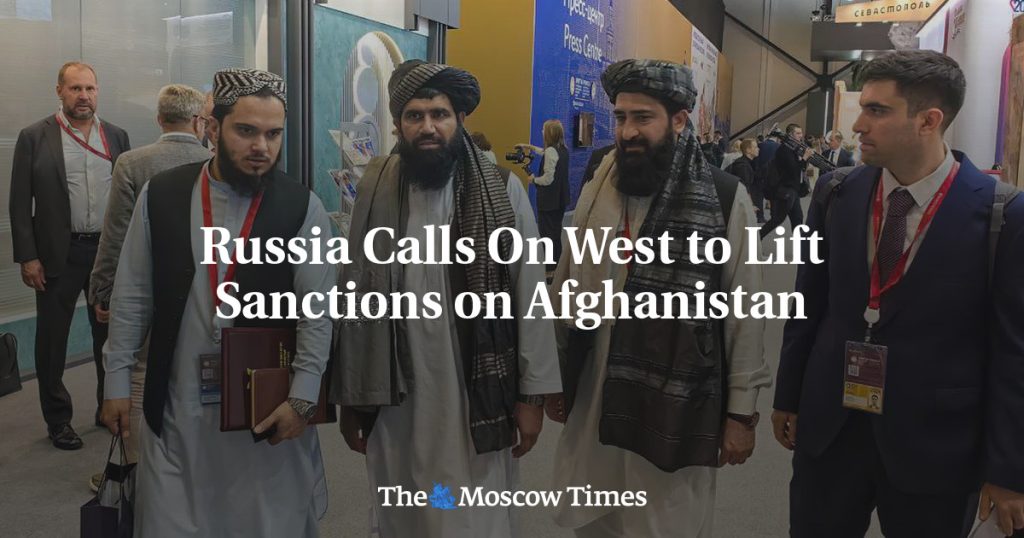Russia’s Foreign Minister Sergei Lavrov called for the West to lift sanctions on Taliban-led Afghanistan and take responsibility for the country’s reconstruction efforts. He did not, however, mention whether Russia would remove its designation of the Taliban as a terrorist organization. Lavrov urged Western countries to recognize their role in post-conflict reconstruction, lift sanctions, and return Kabul’s assets. The Taliban has been under sanctions for more than two decades due to concerns about financing for terrorist groups, initially imposed to restrict al-Qaeda.
Russia’s presidential envoy on Afghanistan, Zamir Kabulov, expressed hope for a decision to remove the Taliban from Russia’s terrorist blacklist in the near future. Russian officials made these statements during an annual diplomatic forum on Afghanistan, which involved envoys from the Taliban and neighboring countries in the Middle East and Central Asia. Since the U.S. withdrawal from Afghanistan in 2021, Russia has cultivated relations with the Taliban, who came to power following the departure of U.S. forces.
The Soviet Union engaged in a long war in Afghanistan in the 1980s, supporting the emergence of mujahideen resistance fighters who later became Taliban leaders. Historians believe that this conflict contributed to the collapse of the Soviet Union. Various Russian officials have advocated for removing the Taliban from the list of terrorist and extremist organizations, a move seen as potentially enhancing cooperation between Russia and Afghanistan. The head of Russia’s FSB security agency, Alexander Bortnikov, expressed a desire for mutually beneficial cooperation with Afghanistan’s special services.
Afghanistan’s Foreign Minister Amir Khan Muttaqi visited Moscow for the diplomatic talks, highlighting the importance of discussions between the two countries. Lavrov emphasized that Russia would not tolerate third countries establishing military bases in Afghanistan or neighboring nations under any pretext. Russia currently maintains a significant military presence in allied Tajikistan, which shares a border with Afghanistan. This stance reflects Russia’s strategic interests in the region and its efforts to maintain stability and security in Central Asia.
The call for lifting sanctions on Afghanistan and engaging in reconstruction efforts by Russia reflects its willingness to play a prominent role in shaping the future of the conflict-ridden country. By fostering relations with the Taliban and advocating for their removal from the terrorist blacklist, Russia aims to strengthen its influence in the region. The emphasis on mutual cooperation and the rejection of third-party military presence in Afghanistan underscores Russia’s commitment to maintaining stability in Central Asia while protecting its strategic interests.
Overall, Russia’s diplomatic efforts regarding Afghanistan signal its desire to play a key role in the country’s post-conflict reconstruction and security. The engagement with the Taliban and regional envoys, as well as the calls for lifting sanctions, demonstrate Russia’s proactive approach in addressing the challenges in Afghanistan. By advocating for closer cooperation and rejecting external military presence, Russia aims to safeguard its interests while contributing to peace and stability in Central Asia.


